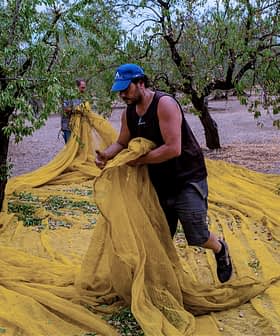Following a European Commission proposal to chop down 11 million olive trees in South Italy infected by Xylella fastidiosa (Xf), a meeting of experts from the 28 European Union (EU) member states in Brussels failed to reach a consensus on the measures to contain the spread of the bacterium.
Xylella fastidiosa, a bacterium spread by insects, has been blamed for the destruction of over 74,000 acres of olive groves in the Salento region of Apulia (Puglia), South Italy.
At the meeting of the EU Plant Health committee in Brussels on March 26 and 27, 2015, experts from the 28 EU member states had differing opinions on the best way to stop Xf.
Italy is opposed to the drastic measures proposed by the European Commission, citing resistance from local olive producers to the destruction of centuries-old olive trees and devastation of the local landscape.
Meanwhile, France and Spain support a hard-line approach, fearing the possible contamination of their own olive groves, vineyards and even citrus trees by the insect-transmitted bacterium.
See Also:More on the Xylella fastidiosa Outbreak in Apulia
Italy would be unable to veto any decisions to be taken on the eradication plan as voting is by a majority. Other EU member states called for a wider ban on plant exports from the Salento region and a larger buffer zone to be treated with pesticides to limit the spread of Xylella fastidiosa.
Local authorities have earmarked a one-million-hectare (2.4‑million acre) eradication zone in the province of Lecce, with affected olive trees being marked with red crosses for imminent felling.
The region of Apulia is one of Italy’s largest producers of olive oil, providing 40 percent of Italy’s output last year.
Discussions are expected to continue at another EU meeting in Brussels this month.








